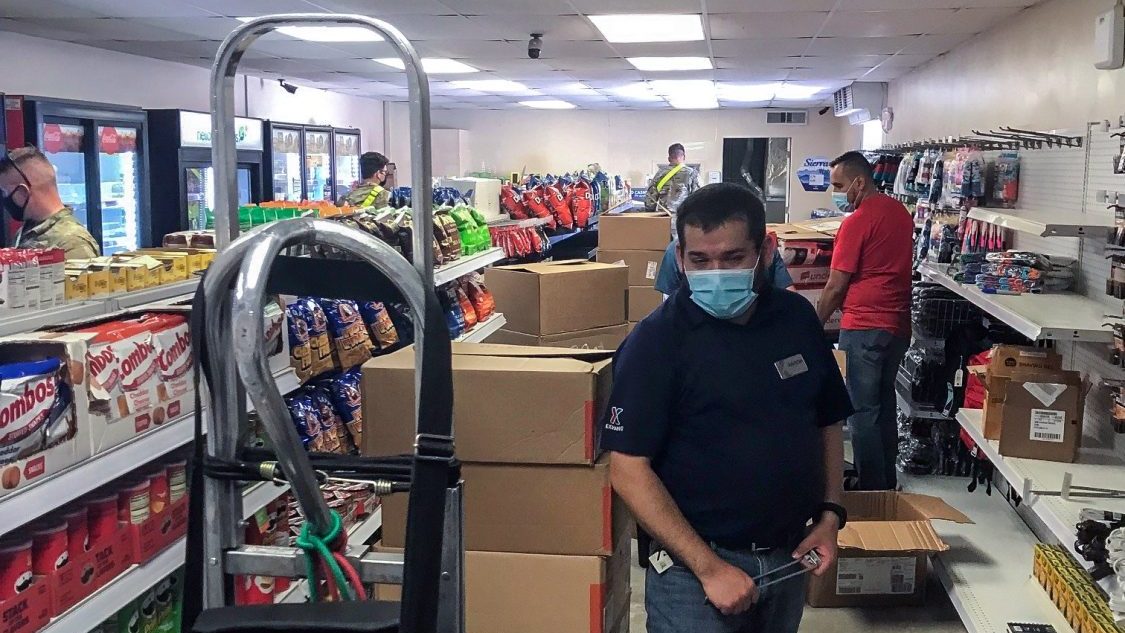Exchange Mounts Worldwide Effort to Support Afghan Guests Staying at U.S. Military Installations

Teams across the Exchange are joining forces to support ongoing efforts to welcome Afghan guests to U.S. military installations and staging points around the globe.
Under the Department of Homeland Security-led Operation Allies Refuge, the installations are expected to host about 50,000 at-risk Afghan civilians who have supported the U.S. mission and their families as they make their way to their new homes in the U.S.

Members of the Fort Bliss Exchange team set up a temporary store to serve guests from Afghanistan staying at Fort Bliss.
The Exchange is serving the guests through mobile field Exchanges (MFEs), temporary stores and special shopping authorizations at various installations in the U.S., Germany, Kosovo/Albania, Qatar and Kuwait.
“Everyone involved in this effort understands how critical the mission is,” said Exchange Director/CEO Tom Shull. “It is a privilege to serve alongside such dedicated members of the Exchange team as we help comfort and welcome those who worked so hard to support the U.S. mission in Afghanistan.”
So far, the Exchange has shipped 500,000 units of merchandise, including blankets, hygiene products, shoes, children’s items, snacks, beverages and other essentials, in support of Afghan guests.
Behind the scenes, senior leaders and Exchange teams around the world are holding regular meetings on emerging developments, ensuring evacuee support operations continue to meet mission needs and planning for future requests.
With so many moving parts, the mission requires input from nearly every corner of Exchange operations: assortment-setting and item allocation by the Merchandising Directorate; product shipment by Logistics; command coordination by regions and general managers; MFE deployment and general coordination by Contingency Operations; Internet and Wi-Fi service by MD’s Telecommunications Division; food truck contracting by Services; coordination with government stakeholders by the Washington Office; sourcing of additional personnel by Human Resources; and legal and procedural guidance from Policy and the Office of the General Counsel.
“This is an all-hands-on-deck effort,” said Roger Neumann, Vice President of Contingency Plans. “Understanding the complexity and urgency of this still-emerging mission, communicating early and often is key. Each member of this group has a critical, interconnected role to play in making sure our efforts are successful.”

